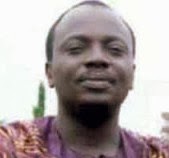Additions to the Library

Between my last report on newly acquired books and now, I have come into possession of several books. This has come about because, first, I ran out books - the remaining few being those I am not keen on reading; besides these are basically non-African authored books. Left with the option of choosing between reading western authors I am not keen on and repleting my library (at moderately significant cost), I chose the latter. However, not all the books I have come to own were purchased. An Enemy of the People by Henrik Ibsen . This was sent to me - in a soft copy format - by a friend. Every body has heard of that Ibsen's statement about the majority being stupid rather than being right. Yes! If you haven't then there you have it. It is in this play that that famous statement was made. The story is a metaphorical take on the cause of rot and deterioration in a society. Guess what it is. This book is worth the read. African Roar 2013 by Emmanuel Sigauke . Every year, sinc...





